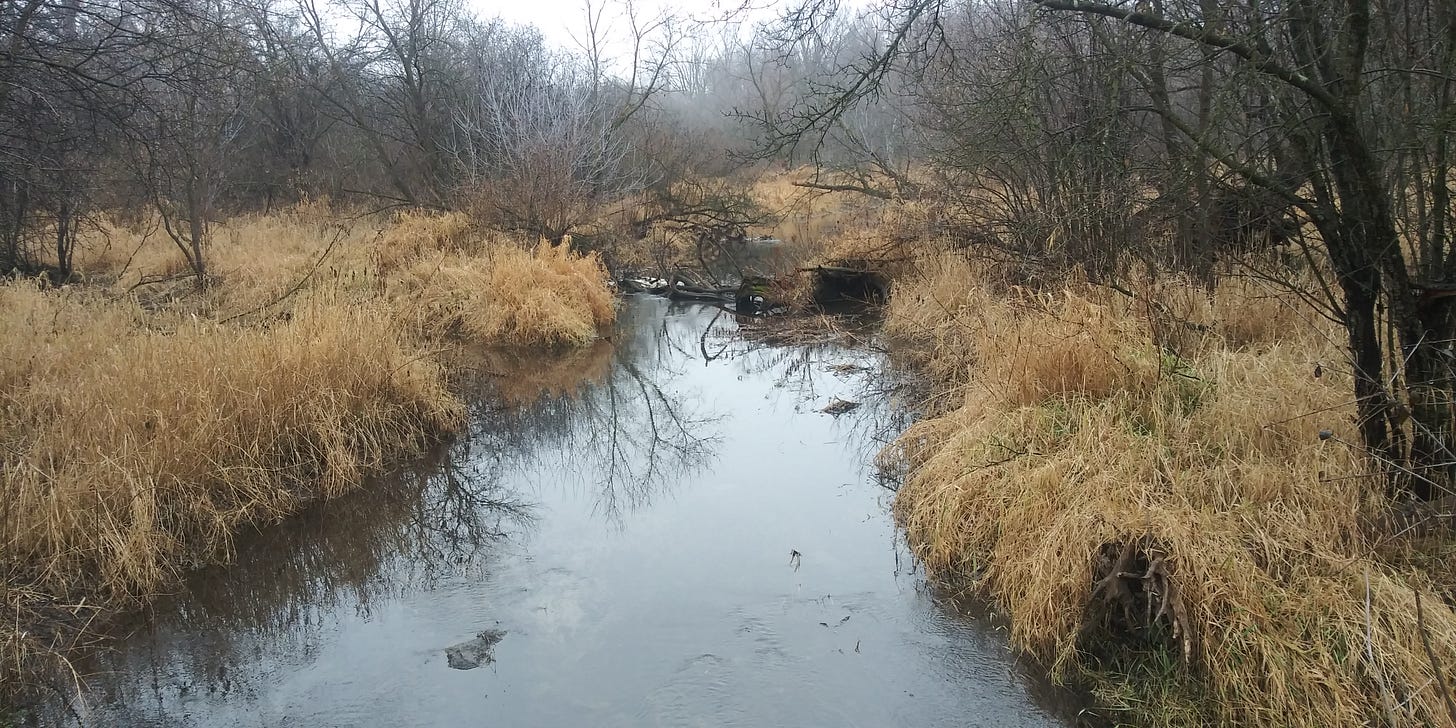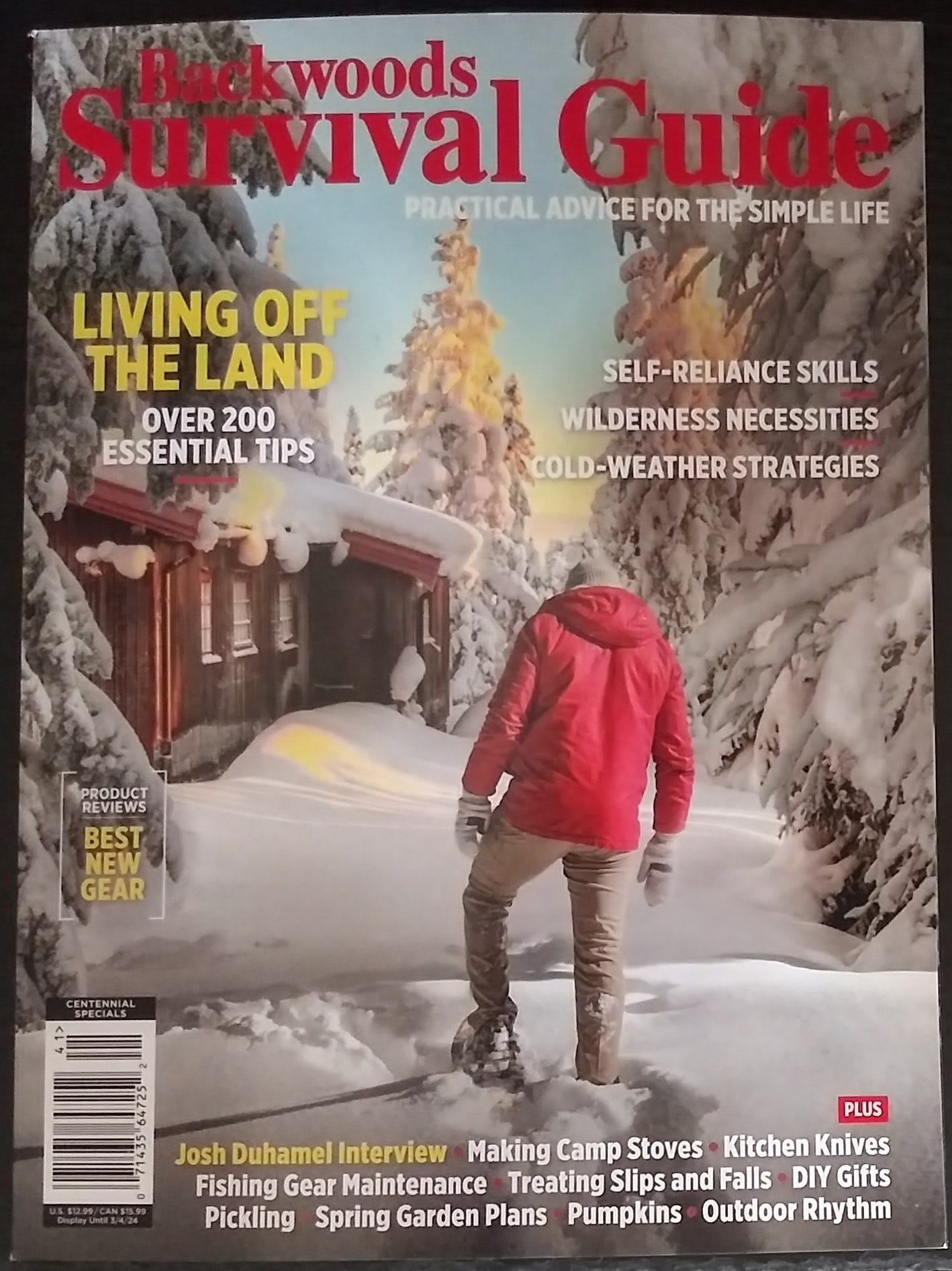Hey everyone, thanks for checking out the newsletter this week. The time between Christmas and New Year’s Day is always kind of weird, isn’t it? On the one hand, you want to get things done so they don’t carry over into the new year. On the other hand, just taking the entire week off and becoming a couch potato has a certain appeal. I’m doing a little of both. I have a few things I want to wrap up, but I’m not breaking my neck to get to them.
I hope everyone had a great holiday weekend and that you’re looking forward to the new year. We don’t do much on New Year’s Eve. For the last several years, we’ve spent that evening listening to music, building LEGO sets, eating snacks, and enjoying each other’s company. New Year’s Day, we always go on a family hike. We’ve found that to be a great way to ring in the new year.
* * *
Just tossing this out there. If any of my newsletter subscribers might know of places paying for freelance knife or other gear reviews, please let me know. I’m looking to expand my reach a bit in 2024.
* * *
Prepper Tip -- If you have a flexible spending account through your employer, be sure to use those funds before the end of the year. You can use them to buy first aid supplies like bandages, as well as many other items. Speak to your Human Resources person at work to make sure you know what is and what isn’t covered.
These flexible spending accounts are great, if you put them to good use. You can divert funds into your account pre-tax and the limit is about $3,000 per year. Use it for deductibles and co-pays, as well as medications and supplies. The downside is that the funds are sort of a use it or lose it proposition. Again, talk to HR so you know exactly what your program allows in that regard. Some employers will allow a short grace period (two months or so) in the next year to use the funds. Others might allow you to rollover a portion of the funds. Either way, the ideal is to just use them up in the plan year. Thus, this reminder to drain that account before December 31st.
An FSA is an awesome benefit to take advantage of, if your employer provides it.
* * *
Have an Amazon gift card burning a hole in your pocket? Here are some recommendations. I’m not providing links to each of them simply because many email programs may then treat this newsletter as spam.
General Preparedness
Practical Self-Reliance by John D. McCann
Be Ready for Anything by Daisy Luther
The Prepper’s Workbook by Scott Williams and Scott Finazzo
The Prepper’s Pocket Guide by Bernie Carr
Build the Perfect Bug Out Bag by Creek Stewart
Build the Perfect Survival Kit by John McCann
The Disaster-Ready Home by Creek Stewart
Prepper’s Long-Term Survival Guide (2nd edition) by Jim Cobb
The Urban Prepper’s Guide by Jim Cobb
Homesteading
The Encyclopedia of Country Living by Carla Emery
Storey’s Basic Country Skills by John and Martha Storey
The Mini Farming Bible by Brett Markham
Creating the Low-Budget Homestead by Steven Gregersen
Curious Compendium of Practical and Obscure Skills
Wild Edibles and Medicinals
Peterson Field Guide to Medicinal Plants and Herbs of Eastern and Central North America
Guide to Wild Foods and Useful Plants by Christopher Nyerges
Foraging Wild Edibles Plants of North America by Christopher Nyerges
Medical
The Survival Medicine Handbook by Dr. Joseph Alton and Amy Alton, ARNP
Alton’s Antibiotics and Infectious Disease by Dr. Joseph Alton and Amy Alton, ARNP
Prepper’s Natural Medicine by Cat Ellis
Where There is No Doctor
Where There is No Dentist
Mindset
The Unthinkable by Amanda Ripley
The Gift of Fear by Gavin de Becker
Left of Bang by Patrick Van Horne and Jason Riley
Wilderness Survival
Extreme Wilderness Survival by Craig Caudill
Stay Alive by John D. McCann
Ultimate Wilderness Gear by Craig Caudill
101 Skills You Need to Survive in the Woods by Kevin Estela
Bushcraft Basics by Leon Pantenburg
Bushcraft by Mors Kochanski
Build the Perfect Bug Out Skills by Creek Stewart
Surviving the Wild by Joshua Enyart
Fiction
There are tons of disaster, survival, and post-apocalyptic novels out there. Lots of them are great, a whole lot more are ridiculous. Here are a few that I liked and would recommend. It isn’t an exhaustive list of great novels, nor are all of them likely to appeal to everyone. Read the summaries, check reviews, and go from there.
The Survivalist series by Arthur Bradley
Borrowed World series by Franklin Horton
The Rule of Three series by Eric Walters
Brian’s Saga (aka Hatchet series) by Gary Paulsen
Ashfall series by Mike Mullin
The Pulse series by Scott B Williams
One Second After by William Forstchen
Lights Out by David Crawford
Edge of Collapse series by Kyla Stone
* * *
With all of the last-minute holiday prep, our hike this week was just a quick jaunt through a local park. We’re really hoping to get to some longer walks in the coming year, as it seems like we’re always pressed for time lately.
Survival Tip – Out with the Old
Most of us would agree that we have entirely too much stuff. The typical American home is absolutely swimming in stuff we don’t need, don’t use, and could easily get rid of without ever missing it.
The thing is, preps require space. Having a year’s worth of food or other supplies is great, but do you really want it just sitting in your living room?
Commit to decluttering your home over the course of the next several months. Don’t try to do it all at once, as that’s a recipe for failure. Start small, say one closet. My own personal rule when it comes to clothing is that if I’ve not worn it in the last year, away it goes. Sure, there are some specialized things like sport coats or ties that don’t get much use but I’m keeping around for certain occasions. But you really don’t need six different parkas, right?
Same thing goes with other items. That vacuum cleaner that stopped working two years ago? Either fix it or ditch it. Supplies for a hobby you gave up years ago? Box it up and let someone else use them.
Some of the things you’re going to get rid of could be sold on Craigslist, Facebook Marketplace, or eBay. The money earned could then to go toward preps. However, make it a rule that if something doesn’t sell, you’ll still get rid of it some other way, such as donating it to a thrift store.
Use the space gained for preps, and also to give you some breathing room.
Prepper Survival Guide and Backwoods Survival Guide
For those new to my little corner of the Internet, I am the Editor in Chief for both Prepper Survival Guide and Backwoods Survival Guide magazines. Here are the covers for the current issues that are available in stores right now.
You can find them just about anywhere magazines are sold, including:
Walmart
Sam's Club
Costco
Publix
Walgreens
Rite Aid
CVS
Tractor Supply
Fleet Farm
Barnes & Noble
Subscriptions to both titles are available here.
Questions, Comments, Complaints, Concerns?
I am always just an email away - jim@survivalweekly.com.





